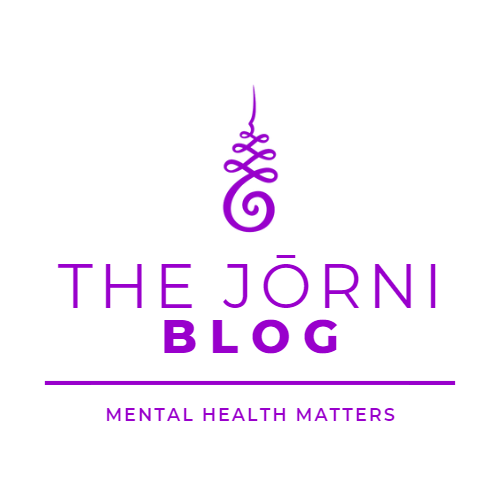Living with Sugar Addiction
Sugar addiction has a significant impact on today’s world, affecting millions of people and contributing to a variety of health issues. Sugar addiction has become more common in recent years. This could be due to the widespread availability and overconsumption of sugary foods and beverages.
My guest on the podcast this week was Rachel Murray, a Registered Holistic Nutritionist and Sugar Addiction Recovery Coach. She spoke about sugar addiction, how it affects us and what we can do to recover from it.
Many people don’t even know they have a sugar addiction. And many more people don’t know the devastating effects sugar addiction can have on our mental and physical health.
In this blog post, we will look at the definition of sugar addiction; the causes; symptoms; and detrimental effects on health and wellbeing.
Alcohol and drug addiction, for example, are frequently highlighted and talked about. However, sugar addiction largely flies under the radar despite its negative impact on our health. Many people don’t think of “just snacking a little too much” as a dangerous addiction.
“Healing doesn’t mean the damage never existed. It means the damage no longer controls our lives”
- Unknown
So, let’s also explore some treatment options available for those suffering from sugar addiction, as well as prevention techniques. You might want to better understand sugar addiction. Or maybe you are looking for help in your personal struggle to overcome it. Whatever your goal, there is lots of helpful information available.
What is Sugar Addiction?
Sugar addiction means craving sugary foods and drinks and experiencing withdrawal symptoms when trying to reduce or stop these types of foods. Sugar addiction is classified as a type of substance use disorder. And it exhibits many of the same features as drug or alcohol addiction, such as tolerance, withdrawal, and cravings.
Sugar addiction is defined differently by different people. But it is generally characterized by an uncontrolled craving for sugary foods and drinks, a fixation with these items, and difficulty cutting back despite negative effects. Physical withdrawal symptoms such as headaches, irritability, and weariness are also prevalent, as are psychological symptoms such as anxiety and depression.

Many specialists believe that sugar addiction is caused by brain alterations caused by prolonged exposure to sugary meals. Sugary foods can affect brain chemistry over time, leading to a dependence on these foods for pleasure and comfort. This addiction can have serious consequences for a person’s health and wellbeing. It can lead to a variety of physical and mental health issues, such as obesity, diabetes, cardiovascular disease, anxiety, and low mood.
Is Sugar Addiction Common?
As I touched on above, sugar addiction is on the rise, with many people unable to manage their appetites for sweet foods and beverages. This doesn’t just apply to adults. Many children are already addicted to sugar at a young age. Considering the possible health consequences, this is a frightening development.
Fast food culture, as well as the broad availability of sugary processed foods and beverages, has contributed to the growing epidemic of sugar addiction. Many popular snacks and beverages are high in sugar, leading to an increase in sugar consumption among people of all ages. The increased usage of sugar as a flavor enhancer in many items has made it more difficult for people to manage their sugar consumption.

Sugar addiction is also becoming a serious public health concern. It has been connected to a variety of health issues, including obesity, diabetes, heart disease, and a variety of mental health problems. According to recent studies, up to 75% of people in developed nations consume more sugar than health professionals recommend. This makes sugar addiction a serious health issue that affects a huge proportion of the population.
Some education and awareness about sugar addiction is starting to appear. But, there is a lot of room for improvement. Education and awareness about the consequences of excessive sugar consumption is great. But we also need to highlight effective treatment choices and sugar-cutting techniques, to tackle this issue on an individual and community level.
Sugar Addiction Consequences
As you probably know, sugar addiction can have serious health and wellbeing consequences. Here is just a brief overview and that’s by no means an exhaustive list.
Obesity
Regularly consuming large amounts of sugar can lead to weight gain, which increases the risk of obesity. Obesity is a substantial risk factor for a wide range of health issues, including cardiovascular disease, type 2 diabetes, and some cancers.

Sugar is heavy in calories and can cause weight gain and high blood glucose levels, both of which can contribute to the development of cardiovascular disease.
Tooth Decay
Sugar is a major contributor to tooth decay because it feeds germs that erode the enamel on teeth.
Chronic Inflammation
Chronic inflammation has been related to excessive sugar consumption. It is a risk factor for many chronic health diseases, such as heart disease, cancer, and autoimmune disorders.
Sugar addiction has far-reaching effects on health and well-being. It is critical for individuals to be aware of the dangers of excessive sugar consumption and to minimize their sugar intake. Making lifestyle adjustments, seeking support from friends and family, or getting aid from a health professional can all be part of this. Addressing sugar addiction is a crucial step toward improving individual and community health and well-being.
What Causes Sugar Addiction?
Sugar addiction can be caused by a variety of factors. Just like our physical and mental wellbeing can be affected by different factors, sugar addiction can be the result of different causal factors.
Sugary foods and drinks can change the chemistry of the brain, creating a dependency on these substances for pleasure and comfort. Sugary meals become associated with pleasure and comfort in the brain over time, resulting in a strong desire to consume them.

High sugar consumption can disrupt the balance of hormones in the body, such as insulin and leptin, leading to cravings and overeating.
Genetics: Some people are inclined genetically to sugar addiction, making them more likely to develop a strong demand for sugary foods.
Emotional and psychological factors: Sugar addiction can be used as a sort of self-medication for people suffering from emotional or psychological issues such as stress, anxiety, or depression.
Sugary foods and drinks are widely available, and the marketing strategies employed to promote these goods might make it difficult for consumers to control their sugar intake.
The causes of sugar addiction are diverse and interconnected. And they differ from person to person. Understanding the root causes of your own sugar addiction is critical for finding successful ways to reduce sugar consumption and beat sugar addiction.
Biological Causes
Sugary foods and beverages can activate the brain’s reward regions, releasing dopamine and other neurotransmitters that produce a pleasurable sensation. The brain becomes conditioned over time to link these pleasurable sensations with sugary foods. This results in a strong desire for these foods.
Hormonal imbalances: Excess sugar consumption can disturb the balance of hormones in the body, such as insulin and leptin. This can cause increased hunger and cravings, as well as weight gain and insulin resistance.
Sugar consumption can also alter the body’s metabolism. The results are insulin resistance, weight gain, and an increased chance of developing chronic health disorders, including type 2 diabetes and heart disease.
Gut bacteria: The bacteria in our gut plays an important role in regulating metabolism and appetite. Excessive sugar consumption can upset the balance of these bacteria. This can result in digestive issues, weight gain, and an increased risk of chronic health diseases.
Psychological Causes
Emotional and psychological factors: Sugar addiction can be used as a sort of self-medication for people suffering from emotional or psychological issues such as stress, anxiety, or depression. Sugary meals can provide a momentary sense of comfort and release from unpleasant emotions, which can lead to an addiction habit.
Consuming sugary foods and beverages can become a deeply ingrained habit over time, making it difficult for individuals to control their sugar intake and eliminate their addiction.

Sugar is widely available and culturally accepted as a pleasure or reward, making it difficult for people to avoid or limit their sugar consumption.
Learned behavior: Children who are repeatedly exposed to sugary meals and drinks may develop a strong desire for these foods, resulting in a sugar addiction pattern that can last into adulthood.
Environmental Causes
Sugary foods and drinks are widely available, and the marketing strategies employed to promote these goods might make it difficult for consumers to control their sugar intake. Sugary foods and drinks are frequently marketed as quick and easy snacks, making them a simple choice for many people.
Peer pressure, cultural norms, and social events can all contribute to an environment that encourages excessive sugar consumption. Offering sugary meals and drinks as gifts or rewards, for example, is a prevalent practice in many cultures.
Work and home environments: The availability of sugary foods and drinks at work or at home might make it difficult for people to resist them. Especially when they are stressed, fatigued, or hungry.
Sugar Addiction Symptoms
How do you know you have a sugar addiction? Here are some signs that there might be a problem with your daily sugar consumption.
Physical Signs
Excess sugar consumption can lead to weight gain and obesity, which can increase the risk of a variety of health concerns.
Tooth decay: Sugary meals and drinks can promote tooth decay and cavities, which can lead to serious oral health issues.
Chronic fatigue: Sugar consumption can produce blood sugar spikes and crashes, resulting in sensations of exhaustion and sluggishness.

Excess sugar consumption can lead to insulin resistance, which increases the risk of developing type 2 diabetes.
Long-term sugar consumption has been related to an increased risk of cardiovascular disease and stroke.
Large amounts of sugar can also contribute to fatty liver disease, which can cause serious liver damage.
Sugar can lead to skin issues such as acne, wrinkles, and dull skin.
Behavioral Signs
Binge eating: Sugar addicts frequently take part in binge eating episodes, in which they consume huge amounts of sugary items in a short period.
Difficulty restricting sugar intake: Despite being aware of the detrimental effects of excessive sugar consumption, individuals with sugar addiction frequently find it difficult to control their sugar intake.
People who are addicted to sugar may continue to consume sugary meals and drinks, even when they know these foods are a danger to their health and wellbeing.
Eating obsession: People who are addicted to sugar may get obsessed with food and find it difficult to focus on anything else.
Mood swings: Excess sugar consumption can cause mood swings, anger, despair, and anxiety.
Avoidance of nutritious foods: People who are addicted to sugar may avoid eating healthy meals like fruits and vegetables in favor of sugary foods and drinks.
Emotional Signs
Mood swings: Excess sugar consumption can cause mood swings, anger, despair, and anxiety.
Individuals suffering from sugar addiction may feel guilty or humiliated about their sugar consumption. This can result in low self-esteem and a negative body image.
Emotional eating: People who are addicted to sugar may turn to sugary foods for comfort or stress relief, resulting in a pattern of emotional eating.
Anxiety and stress: Eating a lot of sugar can induce blood sugar spikes and crashes, which can lead to feelings of anxiety and tension.

Difficulty managing stress: People who are addicted to sugar may struggle to manage stress and may turn to sweet foods as a coping technique.
Asking for Help with Sugar Addiction
Cognitive-behavioral therapy, mindfulness and stress management techniques, healthy eating habits, support groups, and pharmaceuticals are all among treatment options for sugar addiction. The most effective treatment strategy will depend on your individual situation and needs.
Behavioral Treatment Options
Behavioral treatments are the type of sugar addiction treatment option that focuses on modifying the behaviors and patterns that lead to sugar addiction. Here are some examples.
Cognitive-behavioral therapy (CBT) is a type of talk therapy that assists people in identifying and changing harmful thought patterns and behaviors associated with sugar addiction. CBT assists people in identifying the triggers and cognitive processes that lead to sugar cravings. The goal is to replace these unhealthy habits with healthier ones.
Contingency management is a type of therapy that employs rewards and incentives to help people restrict their sugar intake and develop healthy habits. For example, an individual may be rewarded for not consuming sugar for a specified length of time.
Habit reversal training is a type of therapy that assists people in replacing harmful habits with positive ones. For example, if a person finds themselves reaching for sugar when stressed, they learn other types of stress reduction.
Motivational interviewing: This style of therapy assists people in exploring and overcoming their hesitation or inability of changing their sugar habits. Motivational interviewing assists people in understanding the causes of their sugar addiction and developing a plan to overcome it.
Support Groups
To help with sugar addiction, connecting with a support group can be helpful. They create a secure, supportive environment to discuss your experiences in and offer encouragement and advice. Support groups can be held in person or online, and they can be led by a therapist or even coach.
12-Step Programs: Similar to Alcoholics Anonymous, 12-step programs such as Overeaters Anonymous or Sugar Addicts Anonymous use a similar style and approach. They offer a friendly network of people seeking to overcome addiction, as well as structured help and accountability through regular meetings.

Sugar addiction support groups: These groups are specifically developed for people who are addicted to sugar. They provide a secure and supportive environment in which people can discuss their experiences, struggles, and triumphs while receiving support and encouragement from others in similar situations.
Online communities and forums: There are many online communities and forums devoted to sugar addiction and recovery. Individuals who prefer online help or live in places where in-person support groups are not available may find these to be a valuable resource.
Lifestyle Changes
Lifestyle changes are another important part of treating sugar addiction. This can include changing nutrition, exercise regimen, sleep habits, and stress management techniques.
Diet: A healthy, balanced diet can help lessen sugar cravings and enhance overall health. It is critical to restrict added sugars in your diet. Focus instead on whole, nutrient-dense foods, such as fruits, vegetables, lean meats, and whole grains.

Regular physical activity can help reduce stress, boost mood, and help you lose weight. Endorphins, which are natural mood boosters, are released during exercise and can help lessen sugar cravings.
Sleep is essential for general health and can help minimize sugar cravings by regulating hormones and mood.
Stress management: Because stress can be a key trigger for sugar cravings, using appropriate stress management techniques is essential for recovering from sugar addiction. Exercise, meditation, deep breathing, and mindfulness practices are examples of helpful stress management approaches.
Mindful eating entails being present and completely engaged when eating. It can help you better understand your cravings and triggers. It can also assist in making healthier dietary choices and lowering overall sugar intake.
Preventing Sugar Addiction
Sugar addiction can be prevented by limiting added sugars in your diet, increasing physical activity, practicing stress management strategies, getting enough sleep, and adopting mindful eating habits. If you incorporate small, lasting diet and lifestyle changes, you can drastically lower your chance of developing a sugar addiction. It is also important to be aware of some triggers that increase sugar cravings, such as stress or boredom.
It’s also critical to educate people about the consequences of excessive sugar consumption. This can help prevent sugar addiction and promote general health and wellbeing. If you understand the negative effects of excessive sugar consumption, you can make informed diet and lifestyle decisions, avoiding the disastrous repercussions of sugar addiction.
Strategies for Sugar Reduction
Sugar-reduction strategies are essential for preventing sugar addiction and promoting overall health and wellbeing. Here are some tips to start with.
Reading food labels: Reading food labels can make you aware of the sugar present in meals and can help you make more educated diet decisions. When shopping, look for items with fewer added sugars and avoid foods with a lot of added sugars.
Increasing fiber intake: Fiber can help decrease the absorption of sugar into the bloodstream, preventing blood sugar rises. Consuming extra fiber through fruits, vegetables, and whole grains will help reduce sugar cravings and avoid sugar addiction.

Avoiding trigger foods: Certain foods, such as candies, sweets, and sugary drinks, can cause sugar cravings and lead to overindulgence in sugar. Identifying and avoiding these trigger foods can help reduce sugar intake.
Drinking water can help lessen sugar cravings and prevent excessive sugar consumption. Carrying a water bottle with you throughout the day will help you keep hydrated and limit your cravings for sugary drinks.
Mindful eating: Mindful eating can help avoid overeating and lower sugar intake. This includes enjoying your food, eating carefully, and paying attention to hunger and fullness cues.
Increasing physical exercise: Regular physical activity can help lower sugar cravings and prevent overeating. This can include mindful movement, yoga, walking, running, cycling, or sports activities.
Healthier Alternatives to Sugar
Finding healthier alternatives to sugary meals and drinks is a crucial step toward lowering sugar consumption and preventing sugar addiction.
Experimenting with new foods: Experimenting with new foods and flavors can help you identify healthier alternatives to sugary foods and drinks. This could include experimenting with new fruits, veggies, whole grains, or other nutritious foods.
Sugary drinks should be replaced with water or some unsweetened beverages (like tea or coffee) because they can be a primary source of added sugars in your diet. Be aware that some fruit juices are extremely high in sugar and not much healthier than soda.

Natural sweeteners, such as honey, maple syrup, or stevia, can be used as a healthier substitute for sugar in cooking and baking. While they still include sugar, they also contain other nutrients and can be a better alternative to refined sugar.
Finding healthier snacks: Fresh fruit, raw veggies, or nuts can be a terrific alternative to sugary snacks, like candy or sweets.
Making tiny dietary changes can help. Switch to whole-grain bread instead of white bread. Or consume almond milk instead of standard milk. Those little steps can help reduce sugar intake and boost overall health.
Cooking at home allows you to have more control over the ingredients in your meals, which can help consume less sugar. Using fresh produce and avoiding processed foods can be much healthier than eating out.
The Takeaway
In this post, we explored sugar addiction, its prevalence in modern culture, and the harmful impact it has on health and wellbeing. We investigated the biological, psychological, and environmental aspects that contribute to sugar addiction. And we also looked at sugar addiction symptoms, which can include physical, behavioral, and emotional problems.
The significance of dealing with sugar addiction cannot be overemphasized. Sugar consumption has been associated with a variety of poor health outcomes. Some include obesity, type 2 diabetes, heart disease, and tooth decay. It can also have a negative impact on emotional wellbeing, including feelings of guilt, humiliation, and low self-esteem.

If you think you are suffering from sugar addiction, you may find it difficult to ask for help. Seeking help is a courageous move for anyone suffering from sugar addiction. And seeking support and finding treatment options can be an essential step in overcoming it. Many people ultimately find they greatly benefit from professional support and guidance to break the cycle of addiction and make long-term changes.
There are many resources available for sugar addiction, including behavioral therapy, support groups, coaching, and lifestyle adjustments.
You can benefit from online and in-person resources and tools, to find help and support to overcome sugar addiction and live a healthier, happier life. Keep in mind that if you are battling sugar addiction, recovery will be a journey with ups and downs. Be kind to yourself and give yourself the time and space to heal.
There may be setbacks along the way. But sugar addiction can be successfully overcome and healed!

